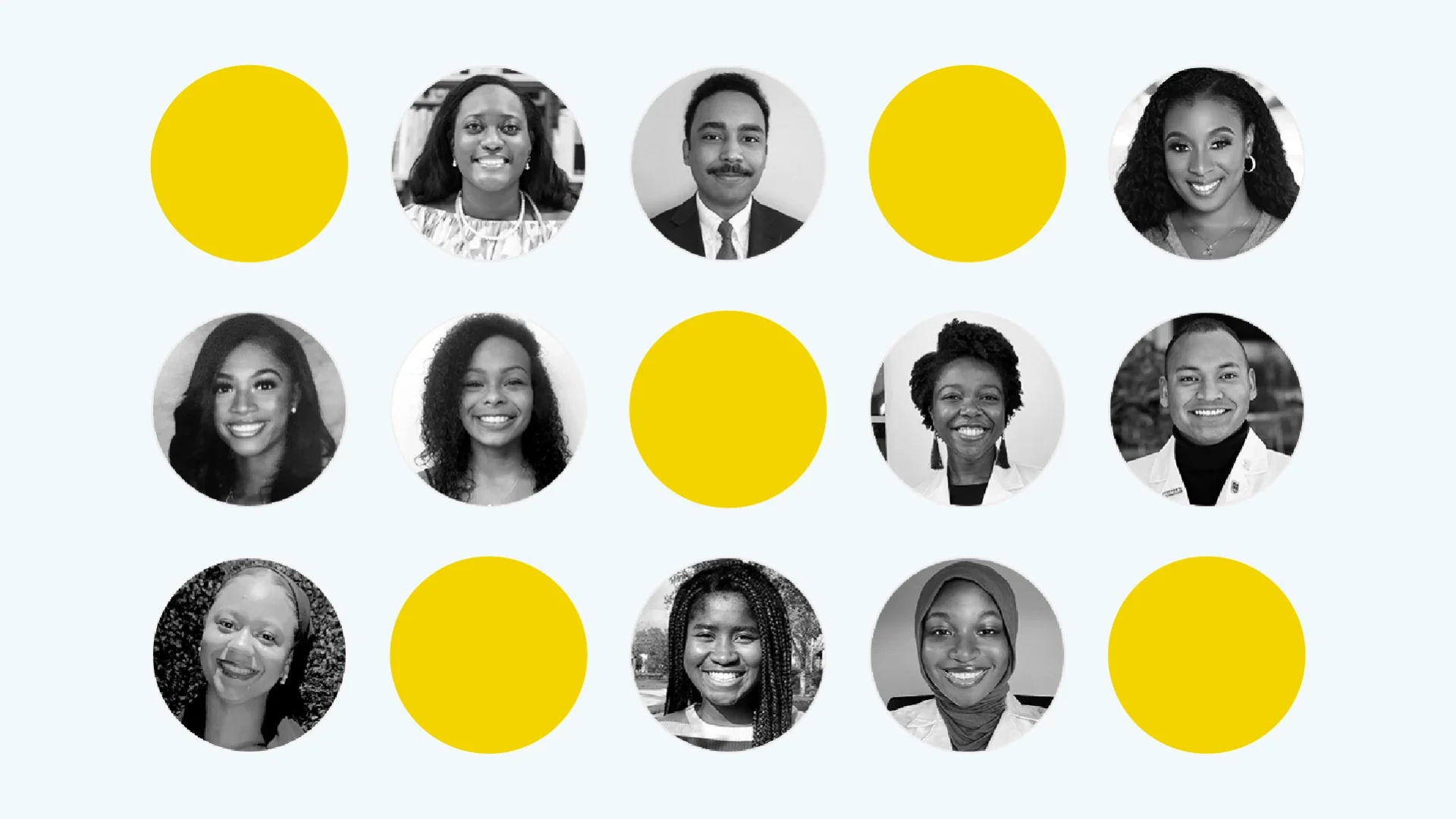This year, GoodRx started a new scholarship program to help address racial inequities in healthcare. The scholarship aids future Black healthcare providers across the country, each of whom have inspiring career goals and rich personal histories.
The pandemic exposed what many of the applicants already noticed prior to the COVID-19 era, namely a lack of healthcare and health resources within the nation’s underserved communities. To respond to these disparities, we asked applicants to share what specific changes they’d like to see in healthcare and how they envision themselves contributing to those changes as physicians. We’re excited to present the 10 winners of this year’s Future Black Physicians Scholarship and their ideas for changing the world, one community at a time.

Alicia C. Edwards
Howard University College of Medicine, Class of 2025
Alicia’s goal is to serve communities in need and build trust through transparency, especially within Black communities. She would like to see more diversity in medicine — with people from all walks of life, perspectives, and cultures contributing to the health of all people. Alicia would also like to increase accessibility to healthcare, citing her grandparents’ inability to get care as residents of rural Mississippi. Even with the spread of telehealth, she recognizes that many people don’t have laptops or smartphones and thus lack access to telehealth services. In response to these disparities, Alicia has participated in marches in the nation’s capital, bringing awareness to policymakers about the lack of access to technology for a subset of people in the U.S.
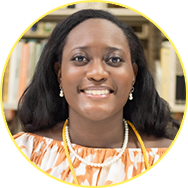
Alexis B. Stokes
Emory University School of Medicine, Class of 2025
Alexis would like to see changes in two major areas of medicine: health literacy and patient education. As an AmeriCorps volunteer, she saw firsthand how children in poorer areas of Alabama failed vision screening exams more often than children in affluent neighborhoods. Parents told her they would have had their children screened sooner, had they known where and when to go. Alexis plans on being intentional with communication, making sure her patients understand complex illnesses and treatment plans. She also plans on providing patient education and health literacy resources to communities, so that patients can get comfortable advocating for themselves.
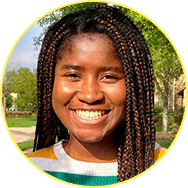
Bryanna O. Godfrey
Stanford University, Class of 2022
Bryanna sees herself as a future primary care physician and educator, who helps practitioners understand the social and economic conditions that impact health. Recognizing that the pandemic brought awareness to health disparities in minority communities, she envisions more communication between healthcare providers and social service providers to address social determinants of health in community-based medicine.
Bryanna also believes a shift is needed away from acute, treatment-based medicine and toward preventive care. As a future private practice provider, she plans on advocating for patients by influencing local policies, ensuring that underserved populations have access to preventive medicine such as cancer screenings and at-home blood pressure monitors. She’s also committed to improving health literacy and providing resources to help patients better understand healthy behaviors and how to navigate chronic conditions.
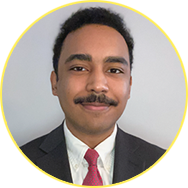
Bruce Ramphal
Harvard Medical School, Class of 2025
Between providing healthcare to people in need in Pune, India, and helping develop an asthma management program in the Bronx, New York, Bruce has made it his goal to address health disparities. His goal is further motivated by his own childhood experiences with environmental pollution and witnessing the negative health outcomes of those around him. He recognizes that the physical and mental health of people can be detrimentally impacted by where they were raised. But he also sees many factors that affect poor health outcomes that can be modified; community-based health innovators and disparity researchers provide examples for social awareness and accessible, competent care. He hopes to bring a focus on health equity to his career as a physician.

Breanna M. Williams
Michigan State University, Class of 2023
Breanna has been interested in a career in women’s health since her junior year in high school and hopes to deconstruct health inequalities in the field of women’s health. She aims to become an obstetrician-gynecologist (OB-GYN) specializing in perinatology as well as a prominent figure in medical research related to African American women. Her focus would be on the high miscarriage and maternal mortality rate of African American women during childbirth. Breanna believes that the biggest needed change in women’s healthcare involves returning to patient-centered care. She aspires to make a lasting impact on the lives of many women and their families by serving as a provider, researcher, and public health advocate.
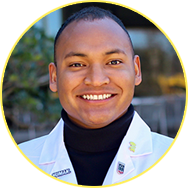
Christian R. Laurent
Medical College of Georgia, Class of 2024
Christian aims to continue his work in genomics — the branch of medicine that focuses on a person’s genetic material. He believes in personalized medicine, which posits that individuals respond differently to medications based on the smallest DNA differences. Personalized medicine, Christian says, can help providers better treat their patients. He also aims to develop a universal electronic medical-records system that best fits and serves patients. Christian’s current research is on allostatic load — chronic stress and manifestations of this stress — among African American women.
Lastly, he wants to promote diversity in medicine. It’s important to him to have physicians who mirror the diverse populations across the U.S., and he and fellow classmates have started an organization called Black Men of Medical College of Georgia. The organization aims to serve their community, increase Black male matriculation at their medical school, and support each other in their studies.
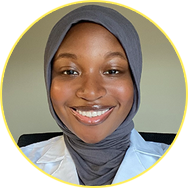
Halima A. Suleiman
City University of New York: Lehman College, Class of 2021
Halima believes in value-based care and has made helping people live healthier lives one of her career goals. She would like to focus on educating her patients around preventive measures such as regular handwashing; the CDC’s recommended vaccines; HealthyPlate.gov’s nutritional suggestions; and regular medical checkups and exercise. Additionally, Halima would like to see policymakers expand telehealth services to all parts of the country, including rural areas and underserved communities. As a volunteer at a free clinic in her community, Halima has learned the importance of patient communication and education and hopes to collaborate with her medical team to establish community health-education programs and provide access to holistic and inclusive health information to individuals with low income.
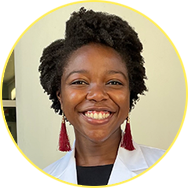
Jessica Ekeya
University of Southern California Keck School of Medicine, Class of 2025
Jessica’s goal is to become not only a primary care clinician but also a community health advocate. She has witnessed firsthand how social determinants of health can lead to devastating health disparities, especially within her extended family in Nigeria. She has also witnessed disparities as a researcher, translator, and supervising director of a free clinic in Chelsea, Massachusetts, that serves an at-risk Hispanic population.
Jessica has worked with the deaf community as well and would like to use her advocacy skills to help address their barriers to care. Since she is fluent in both Spanish and American Sign Language, she is committed to working with Spanish-speaking individuals and those in underserved communities who cannot hear.
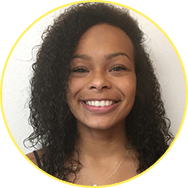
Marissa Igunbor
Northeastern Illinois University, Class of 2021
Marissa would like to see two main changes in healthcare: cultural/structural competency among healthcare providers and a greater emphasis on trauma-informed care. Marissa has seen the impacts of these types of communication gaps through her work with community relief organizations.
She also believes that taking the time to learn about the issues patients face on an everyday basis will allow her to develop attainable and sustainable care plans. By actively listening to a patient’s personal situation, for example, she might detect that exercise or healthy meals are prohibitive because the individual does not feel safe at home or lives in a food desert.
As for trauma-informed care, Marissa was first introduced to the concept when she trained as a sexual assault crisis counselor, and the experience motivated her to bring trauma-informed care into her own practice.
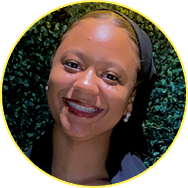
Nasira Muhammad
University of Illinois at Urbana-Champaign, Class of 2023
Nasira envisions herself as a catalyst for change based upon her personal experiences and tribulations as an African American Muslim woman from Chicago. One of the most prominent disparities she has witnessed has been the lack of health literacy within her family and community. She hopes to meet the mission and values of modern and future medicine by being a visual minority presence in the medical field and using her personal experience to deliver unique solutions that could transfigure the current healthcare system through research, evaluation, and purposeful efforts within underserved communities.
—
At GoodRx, we are inspired by the ambitions of these future Black physicians. We’re thrilled to welcome them into the GoodRx family and will continue to support their goals. To learn more about the GoodRx Scholarship for Future Black Physicians and other ways that we support students, visit our scholarships page.

